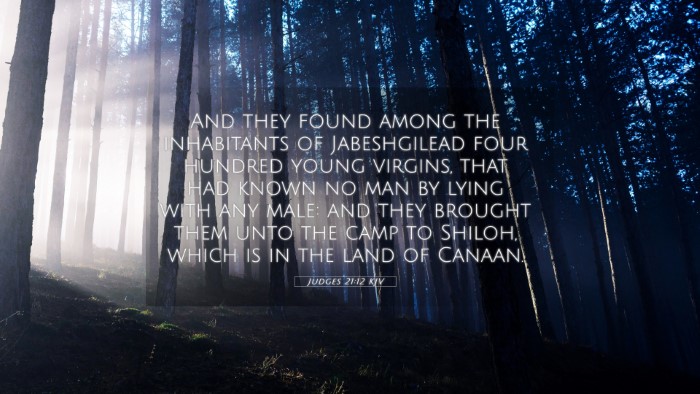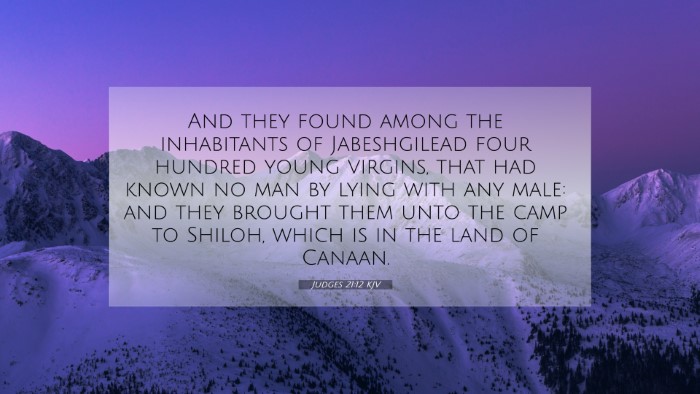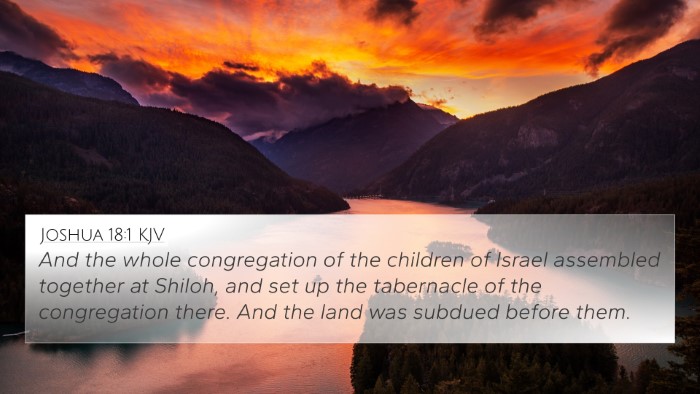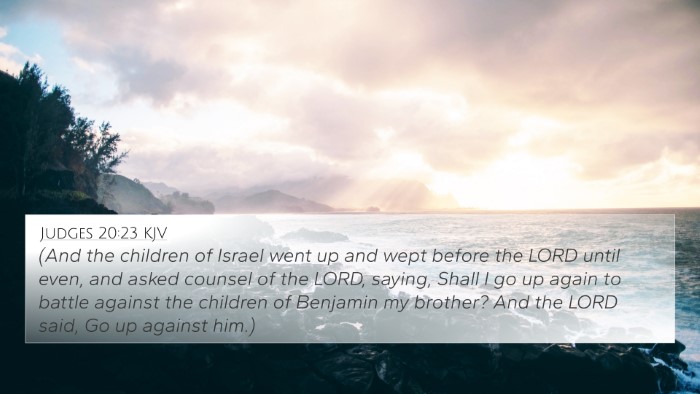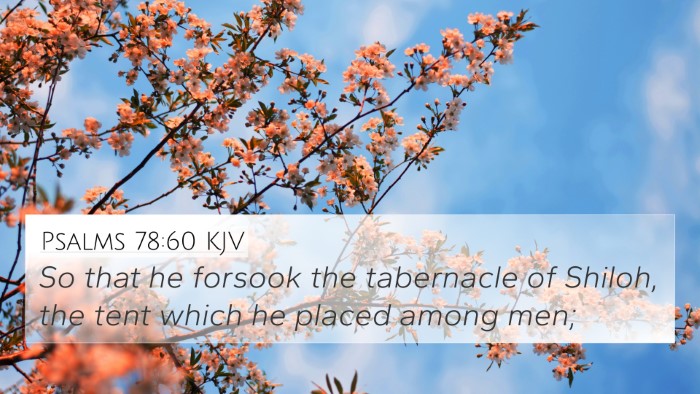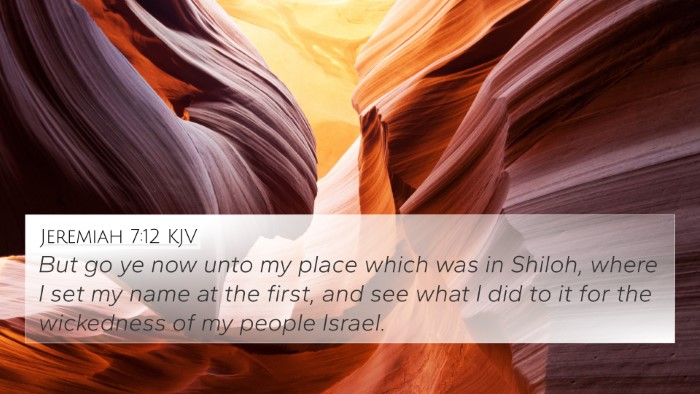Understanding Judges 21:12
Judges 21:12 recounts a significant and often troubling episode in the history of Israel. The verse states: "And they found among the inhabitants of Jabesh-gilead four hundred young virgins, and brought them unto the camp to Shiloh, which is in the land of Canaan." This event takes place in the aftermath of a civil war where the Benjamites were nearly annihilated, reflecting the complexities of human actions and divine oversight.
Context and Background
The events leading up to this moment are marked by chaos and moral failures in Israel, where every man did what was right in his own eyes (Judges 21:25). The need for wives for the remaining Benjamite men brings about a drastic method of fulfilling this need, significantly impacting the tribe's future.
Meaning and Interpretations
In examining this verse, we can draw insights from several public domain commentaries:
-
Matthew Henry:
Henry notes the gravity of the situation, highlighting the desperation that led to the selection of women from Jabesh-gilead. He emphasizes the moral dilemmas in their actions while attempting to secure the continuation of a tribe.
-
Albert Barnes:
Barnes provides a historical context, explaining the relationship between Israel's tribes and the severe consequences of their civil strife. He reflects on the lengths they went to in order to avoid losing the tribe of Benjamin.
-
Adam Clarke:
Clarke focuses on the implications of this event concerning God’s plan for Israel. He discusses how the actions of the Israelites, though perplexing, were part of the larger narrative shaping the nation.
Thematic Connections
This verse can be linked to several broader themes within the Biblical narrative:
- Moral Complexity of Choices: Judges 21:12 reflects the struggles and ethical decisions faced by the Israelites.
- God's Sovereignty: Despite human failure, God's purposes are still fulfilled.
- Redemption and Restoration: This act was aimed at restoring the tribe of Benjamin and preventing complete extinction, signifying hope even in dire circumstances.
Cross-References
Judges 21:12 has various connections within the Scriptures:
- Judges 21:1-3: The oath of the Israelites not to give their daughters to the Benjamites.
- Judges 11:1-2: The beginning of Jephthah's story and the involvement of familial ties, highlighting the importance of lineage.
- Genesis 34: The story of Dinah and how interpersonal conflicts lead to broader implications.
- 1 Samuel 11:1-5: The response of Israel to threats against their kin, showing the ongoing themes of loyalty and unity.
- Ruth 1:1-4: Issues related to marriage and familial obligations across tribal lines, drawing parallels to the urgency in Judges.
- Luke 17:26-30: The reflection on how people's moral choices impact their fate, resonating with the consequences seen in Judges.
- Romans 11:1-5: Paul’s discussion about a remnant of Israel parallels the preservation effort of the Benjamites.
Conclusion
Judges 21:12 serves as a poignant reminder of the complexities of human choices, the impact of moral dilemmas, and the overarching narrative of redemption throughout Biblical history. The intertwining of themes and cross-references enhances our understanding, offering invaluable lessons and reflections for today's readers.
Tools for Further Study
For those interested in exploring the connections between Bible verses, utilizing a Bible concordance can be immensely helpful. It allows for a structured way to engage in cross-referencing Bible study, leading to deeper insights into the Bible verse cross-references that enrich our understanding of Scripture.
Suggested Studies
- How to find cross-references in the Bible for a more extensive examination.
- Identifying connections between the Old and New Testament as an enriching practice.
- Comparative study of Pauline epistles for a deeper understanding of themes aligned with Judges 21:12.

